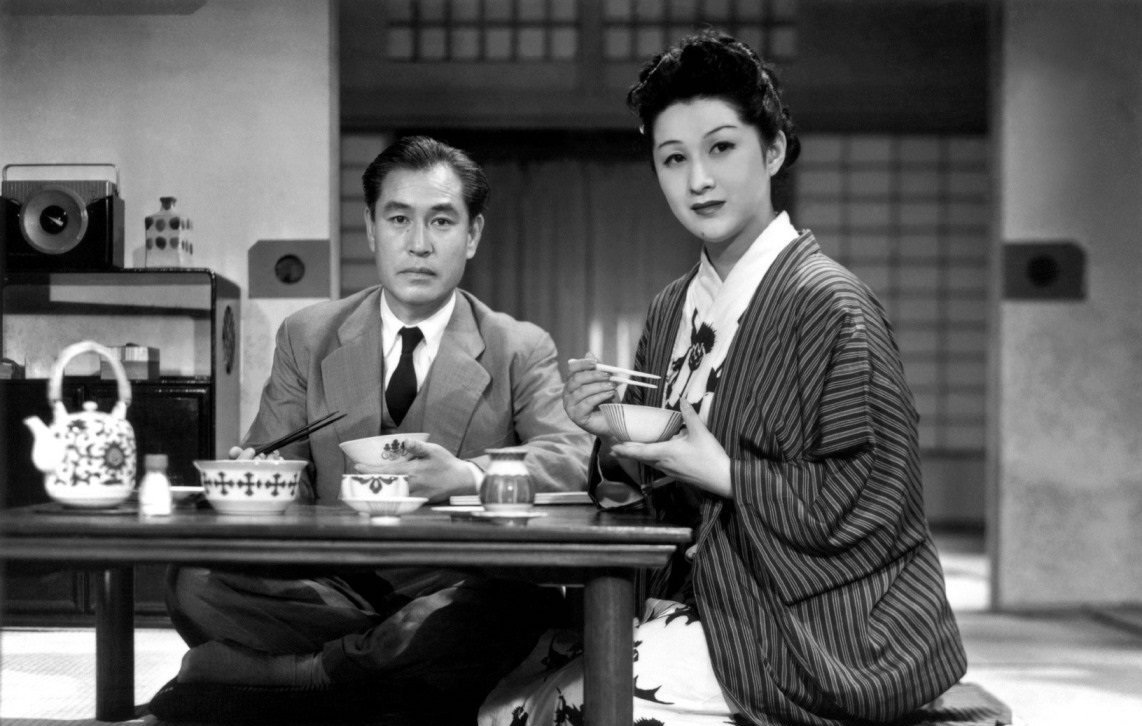Yasujirō Ozu | 1hr 56min

The waning love of a resentful marriage is almost impossible to restore, though unlike the couples of Yasujirō Ozu’s previous films, the wedge driven between Teako and Mokichi is not the result of guilty secrets. The only thing that has caught up to them is time, gradually wearing away at Taeko’s tolerance for her husband’s meekness and lack of sophistication. His lowbrow habit of pouring soup over rice to make chazuke has become her latest target, coming off his earlier compromises of giving up his favourite cigarette brand and avoiding third-class train travel. While his preference for life’s simple pleasures betrays his common background, she stands firm in her snobbish judgement, publicly calling him a “bonehead” and unfavourably comparing him to the largest, slowest koi in a pond.
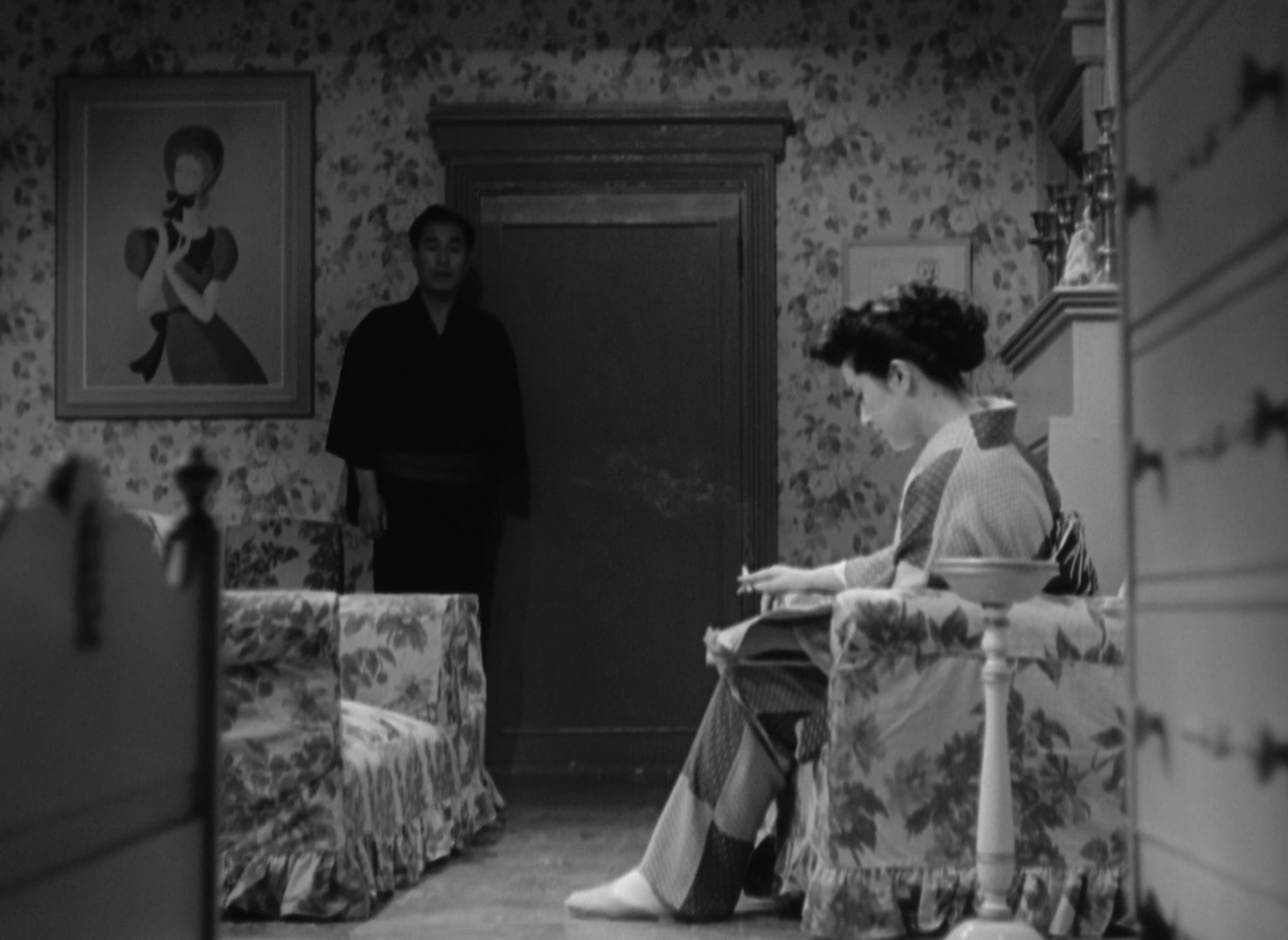
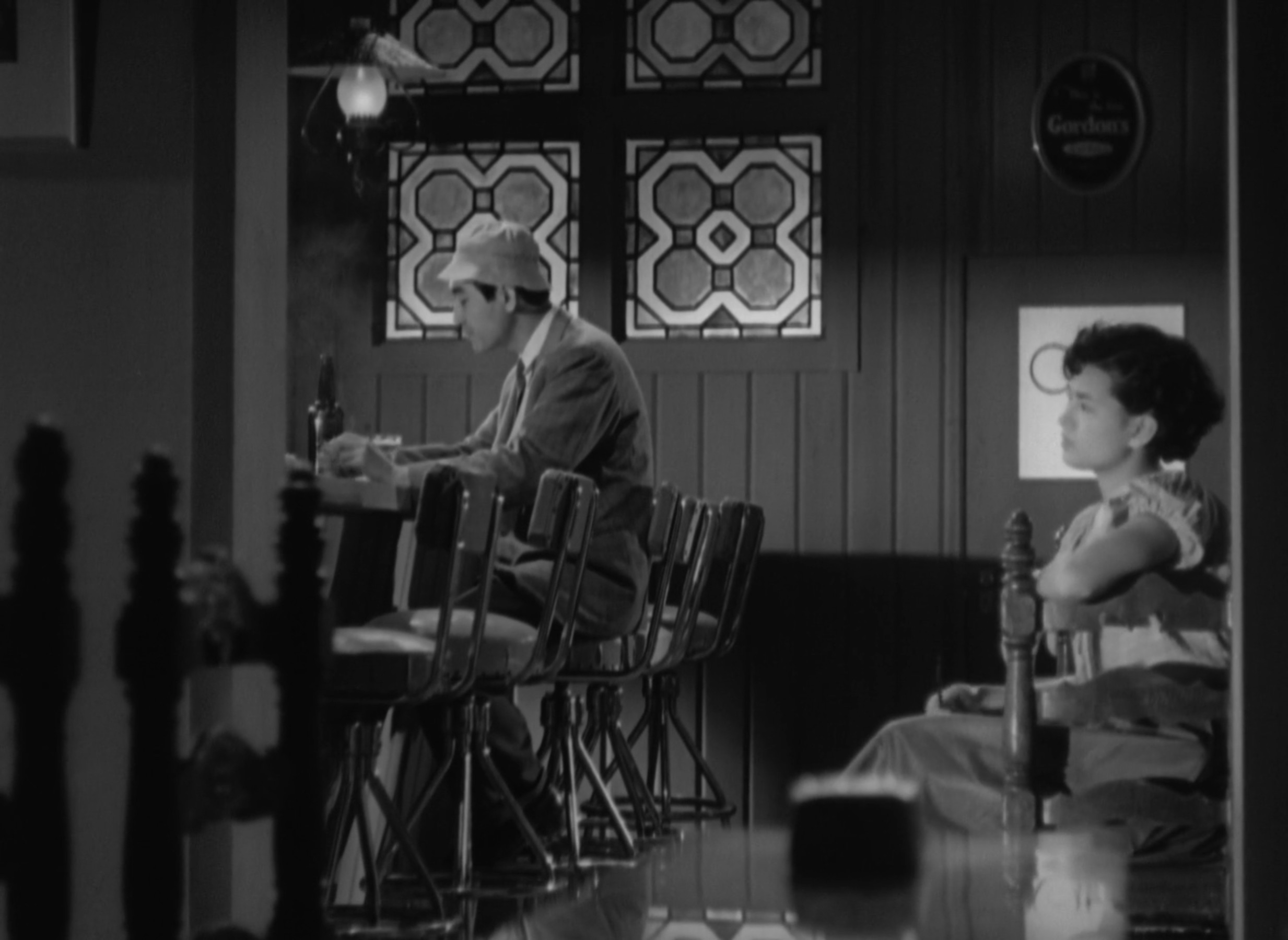
It’s no wonder then that Taeko’s niece Setsuko is so reluctant to enter an arranged marriage of her own. It’s a “feudalistic” institution that inevitably leads to bitterness, she believes, and the fact that Taeko has been tasked with landing her a suitor only pushes her further away. In Mokichi at least she finds an adult who can lend a sympathetic ear, and eventually even stand up for her independence. “If we force her to get married, we’ll be creating another couple like us,” he proclaims to his wife, granting Setsuko freedom at the cost of what little harmony remains in his marriage. Though it has been left to wither over the years, The Flavor of Green Tea Over Rice never stops yearning for the love that Taeko’s friends believe is still there, evidenced by the very fact of her constant, petty griping.
Besides, it’s not as if their marriages are that much more blissful. Wealth and status only seem to exacerbate personal issues between couples, particularly humiliating Taeko’s friend Aya one day when her husband is spotted with another woman. Each of Ozu’s side characters are fully realised in this domestic drama, revealing a mid-century Japan that is desperate to find peace in its traditions, yet which lets discontent seep through the cracks of conformity. Social inequality is baked into the dynamics of these relationships, and those without the emotional intelligence to address their widening rifts are destined to be isolated by them.
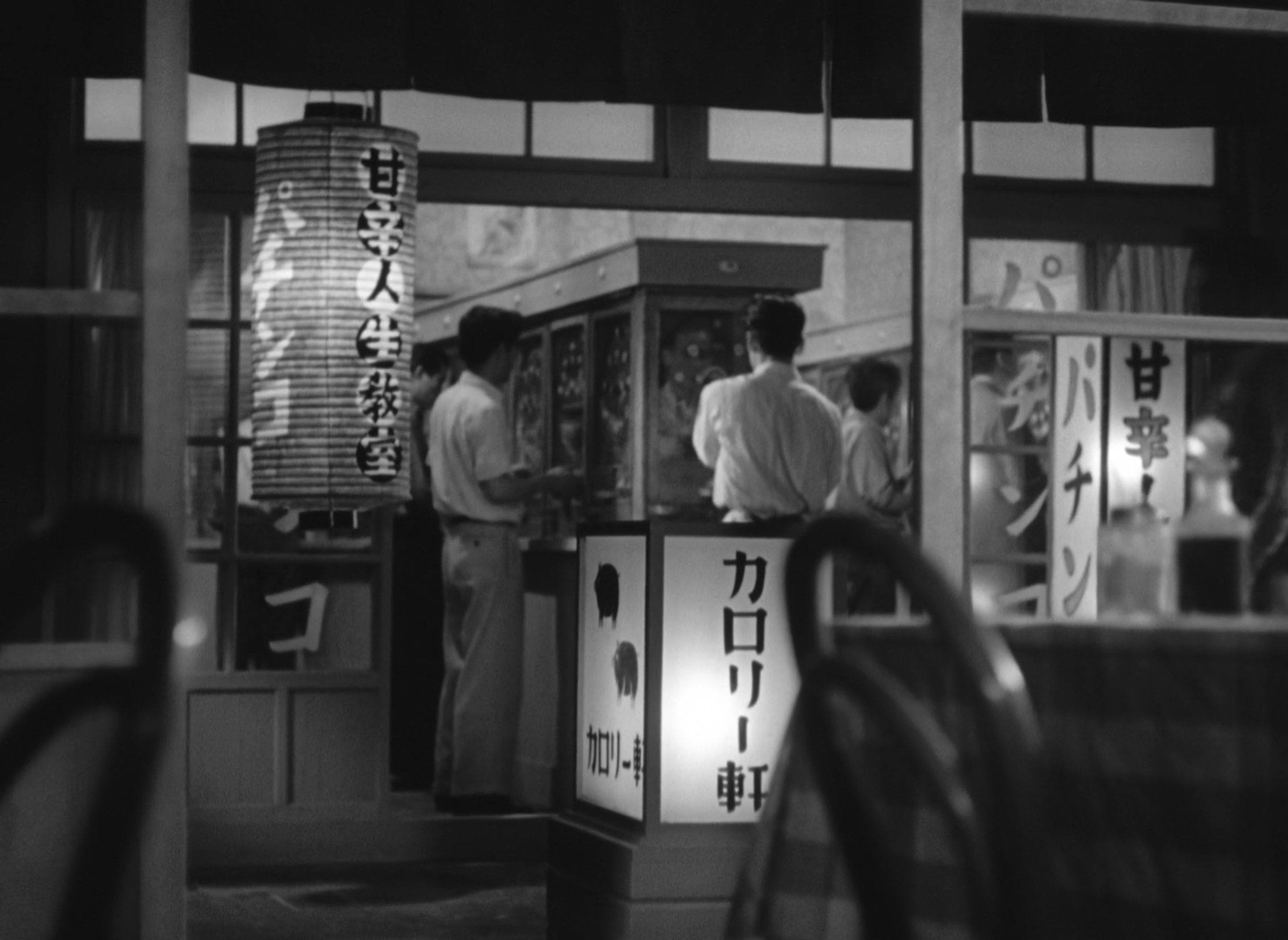
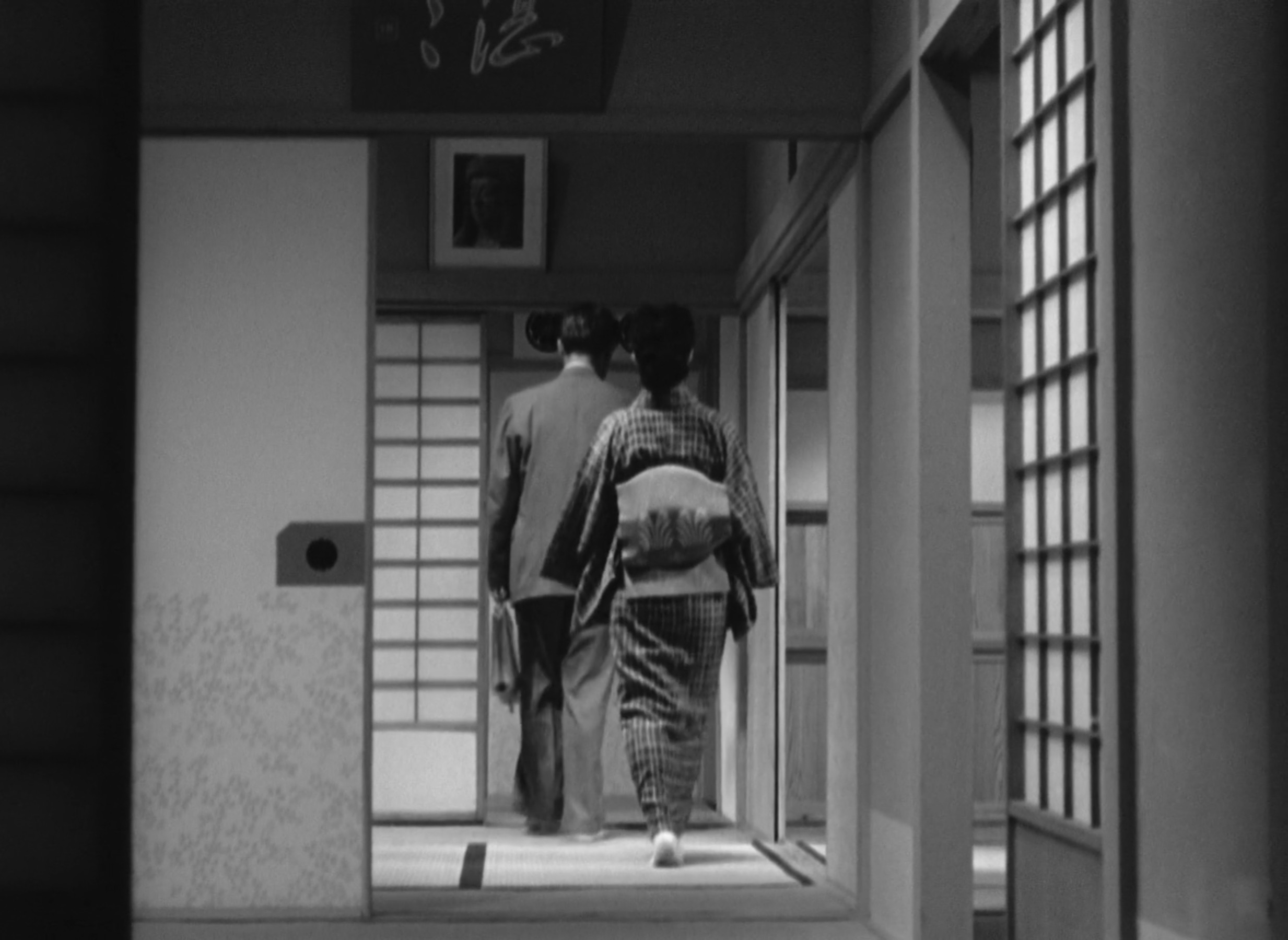
The Flavor of Green Tea Over Rice wasn’t Ozu’s first exploration of marital pressures, though previous studies had often focused on young adults like Setsuko, navigating expectations of courtship and resisting arranged suitors. With a middle-aged couple at the centre of this story, his direction effortlessly attunes to their mundane routines, building meditative formal rhythms into the flow of his narrative. Tracking shots are more abundant here than ever, often gently pushing the camera through homely interiors and office spaces before settling on cluttered yet orderly compositions. The recurring folk songs that his characters croon also develop into a stirring motif, reflecting on days of blooming violets that overwhelm Taeko with wistful sorrow, and later uniting Mokichi with an old army buddy as they reminisce on fallen friends.
“‘I’ll lead the charge,’ you boldly declared,
My comrade in arms who so bravely died,
Carrying your remains I forge ahead,
Into the morning streets of Singapore.”
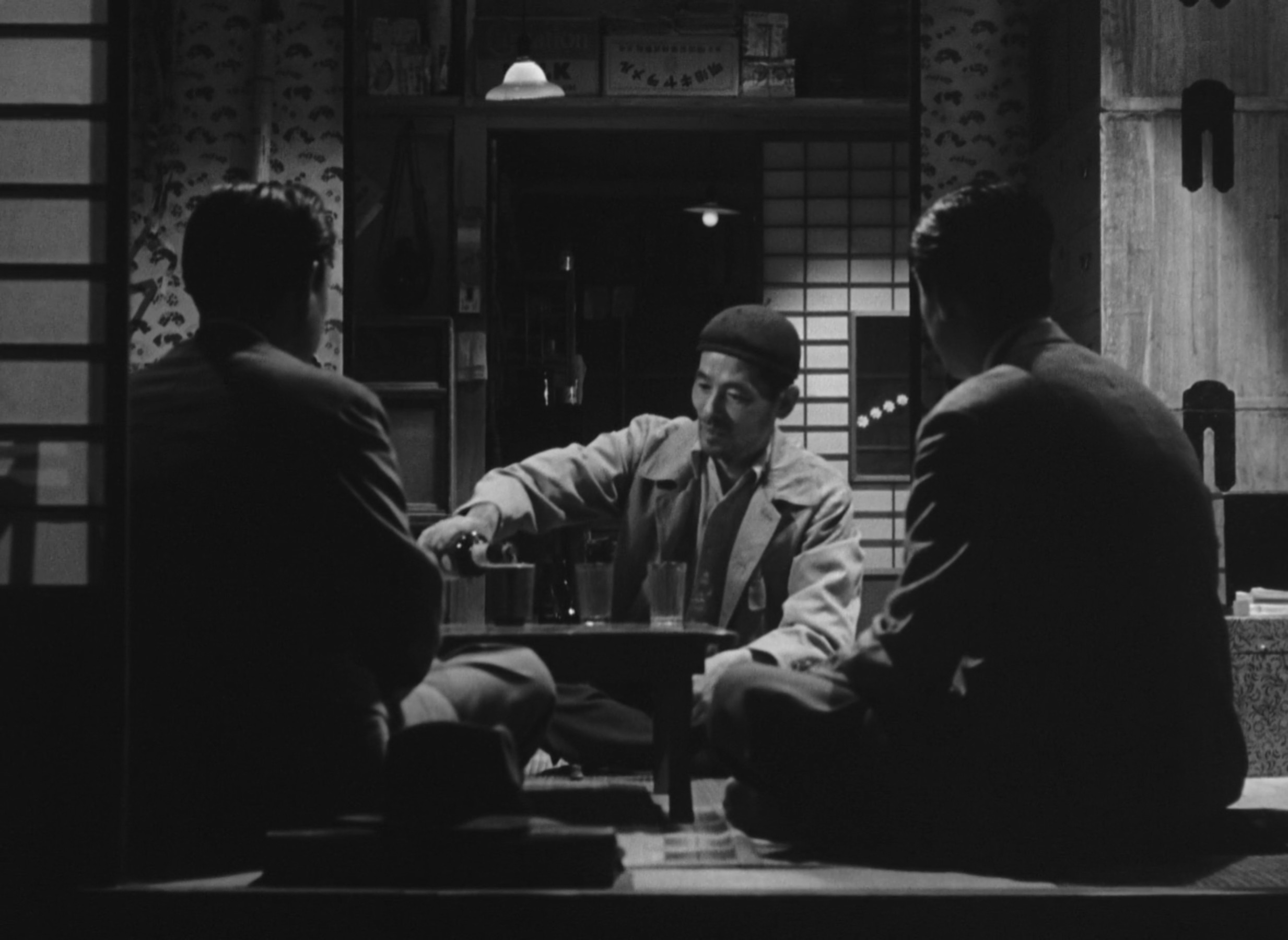
In these moments of quiet remembrance, Ozu taps into a broader cultural memory, deepening the fractures which pervade everyday life in postwar Tokyo. The Flavor of Green Tea Over Rice may be a minor entry in his filmography, yet the elegance with which it visually illustrates conformity and division is nonetheless remarkable, particularly in those scenes where Taeko gathers with her friends. The matching garments they wear of checkered and piebald patterns are virtually uniforms, binding the group under a common social contract, and the mountain-like icons painted across the spa attractively decorate the architectural frames that envelop them.
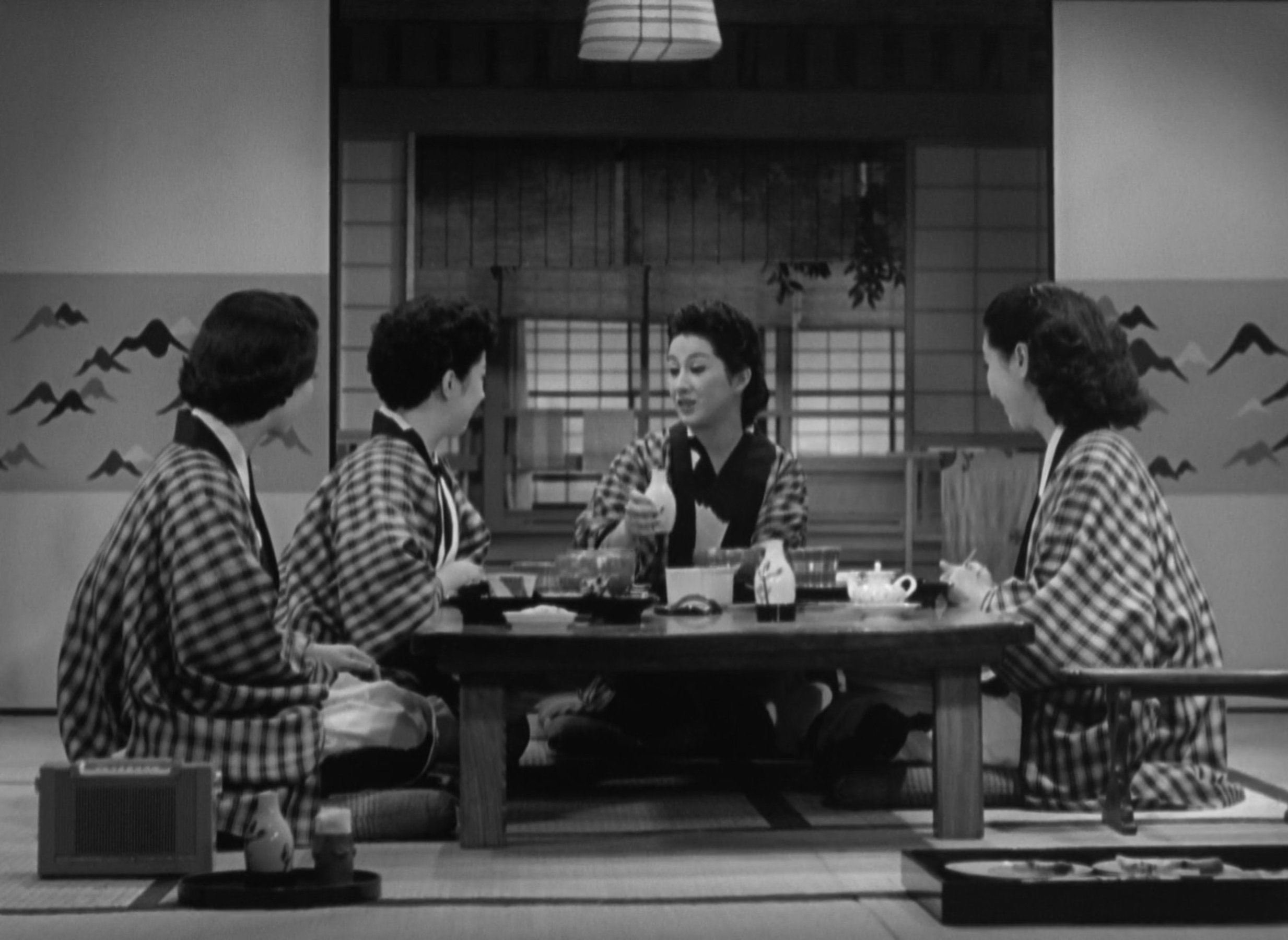
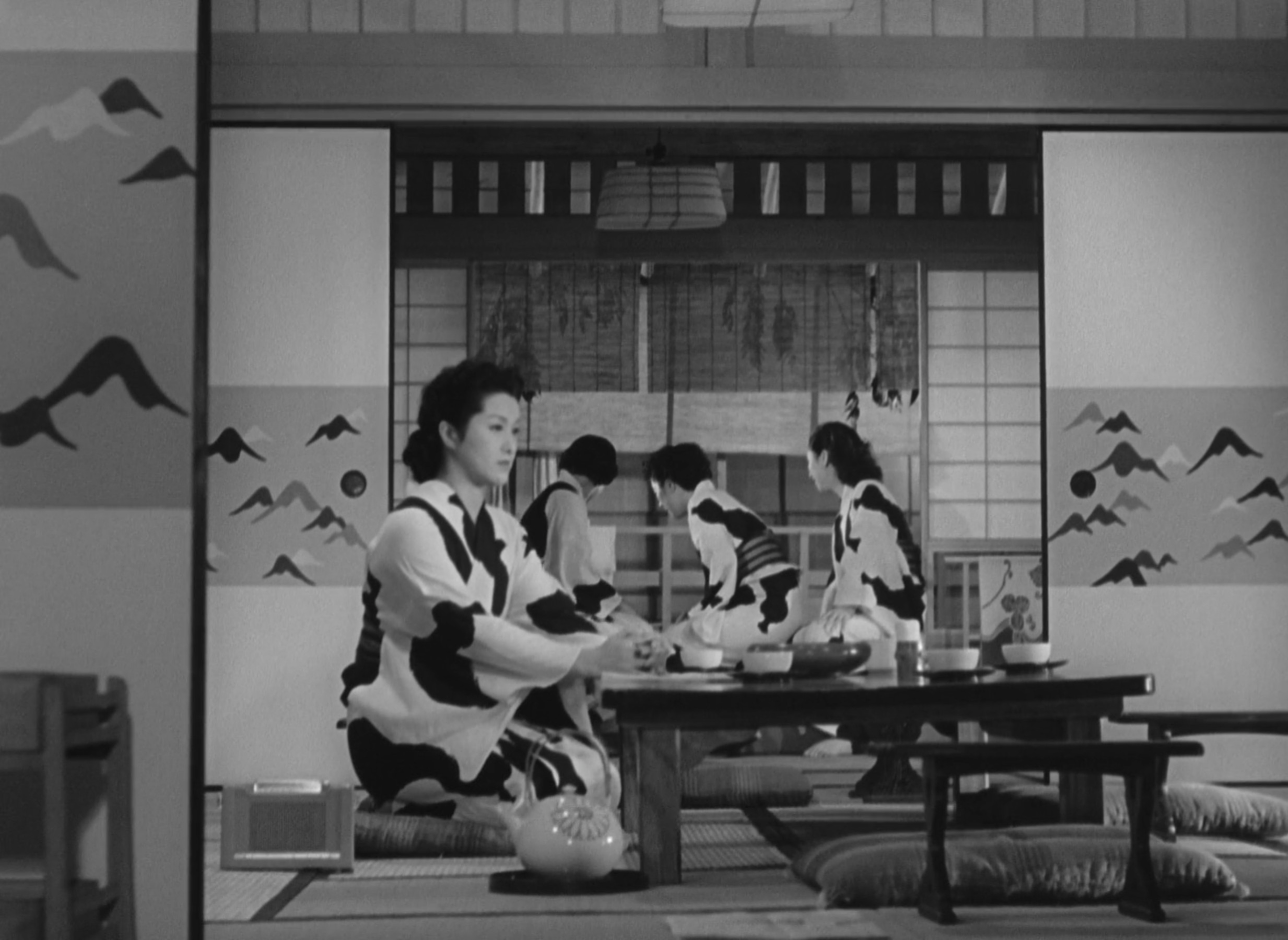
Still, Ozu’s blocking consistently betrays the loneliness that Taeko feels among these women, separating them through his depth of field or otherwise insulating her in single shots. At home too, mirrored compositions draw parallels between her and Mochiki, initially using the impeccable shoji door framing to emphasise his alienation and later capturing her from an identical angle. There are no winners in a relationship based on judgement and disrespect, so after Taeko eventually storms out in the heat of an argument, she has no one to blame but herself when Mokichi is unable to notify her of his urgent business trip.
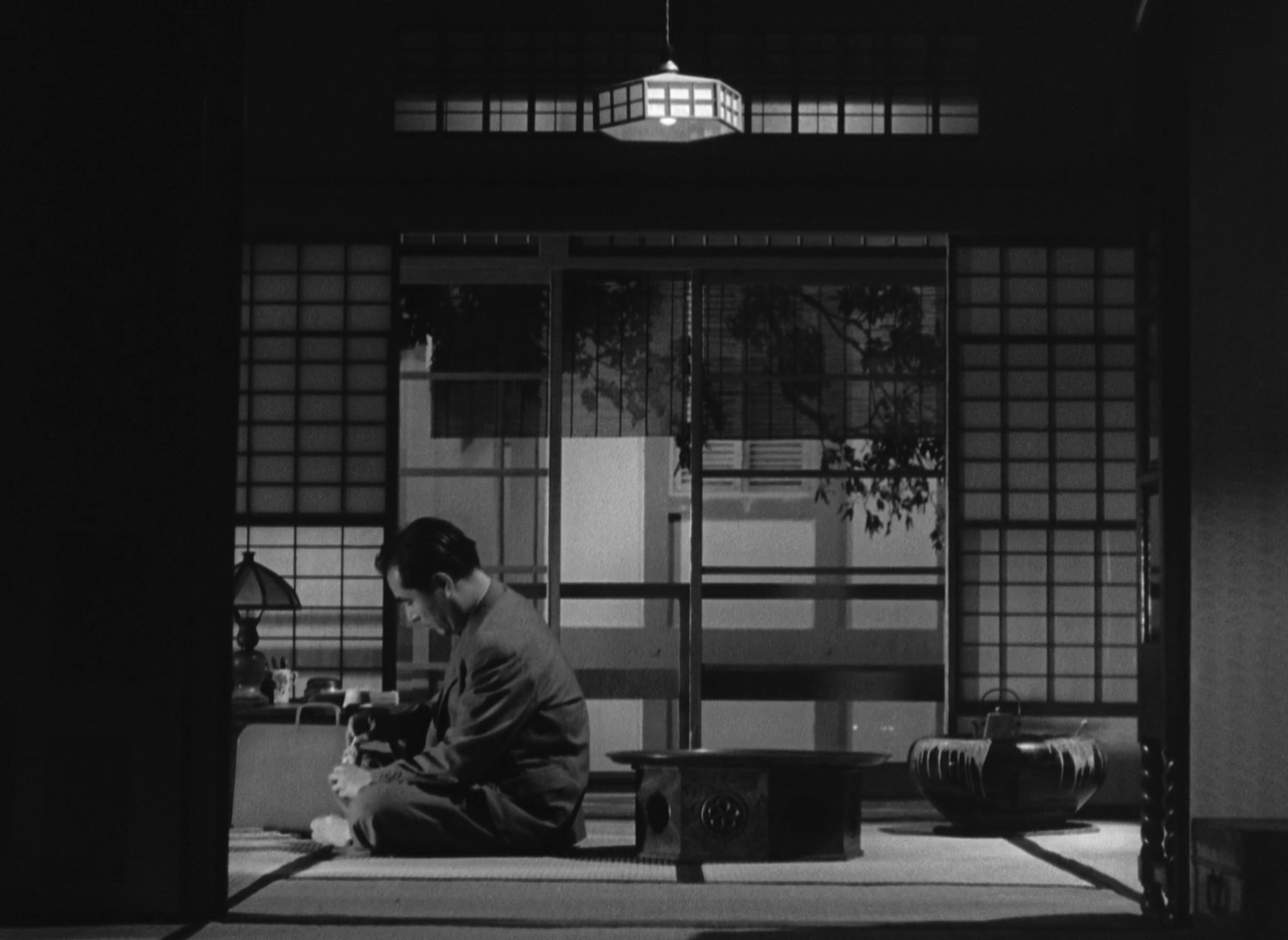
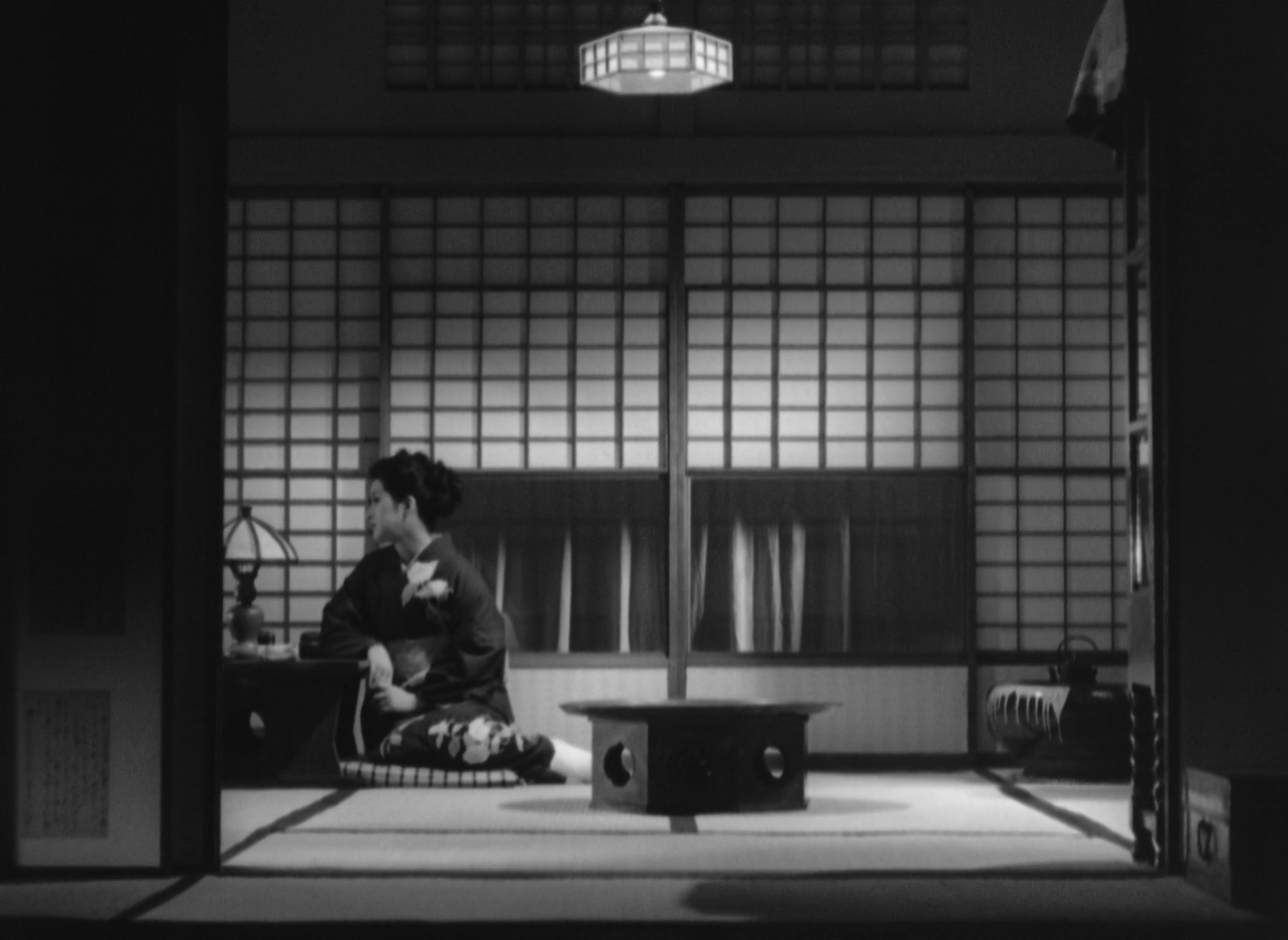
Returning to the find the house empty, something inside her shifts. As such, it is fortunate indeed that his flight was rescheduled due to poor weather – the time for reconciliation presents itself as if by fate, beginning with an apology for walking out in a huff. Together in the kitchen, they prepare themselves a meal, and Ozu savours the peace that settles over the scene. Stools, bottles, and benches obstruct the camera, but rather than visually confining them in an oppressive space, the gentle disarray offers a tender intimacy. There is no awkwardness in the silence as they move around each other. Through their domestic choreography, there is instead a harmony that can only be felt through the act of unspoken, ritualistic collaboration.
Of course, the dish in question is green tea poured over rice – another form of Mochiki’s beloved chazuke. “That’s what marriage is,” Mochiki reflects. Nothing expensive, novel, or elaborate, but the warm, refreshing flavour of a familiar comfort food. Only in emotional security may the seeds of healing be planted, and as we see in Ozu’s loving couple, only once those seeds sprout may passion bloom anew. There in the rediscovery of affection, The Flavor of Green Tea Over Rice at last finds a soothing return to steady companionship, steeped in routine and served with dignified, timeworn grace.
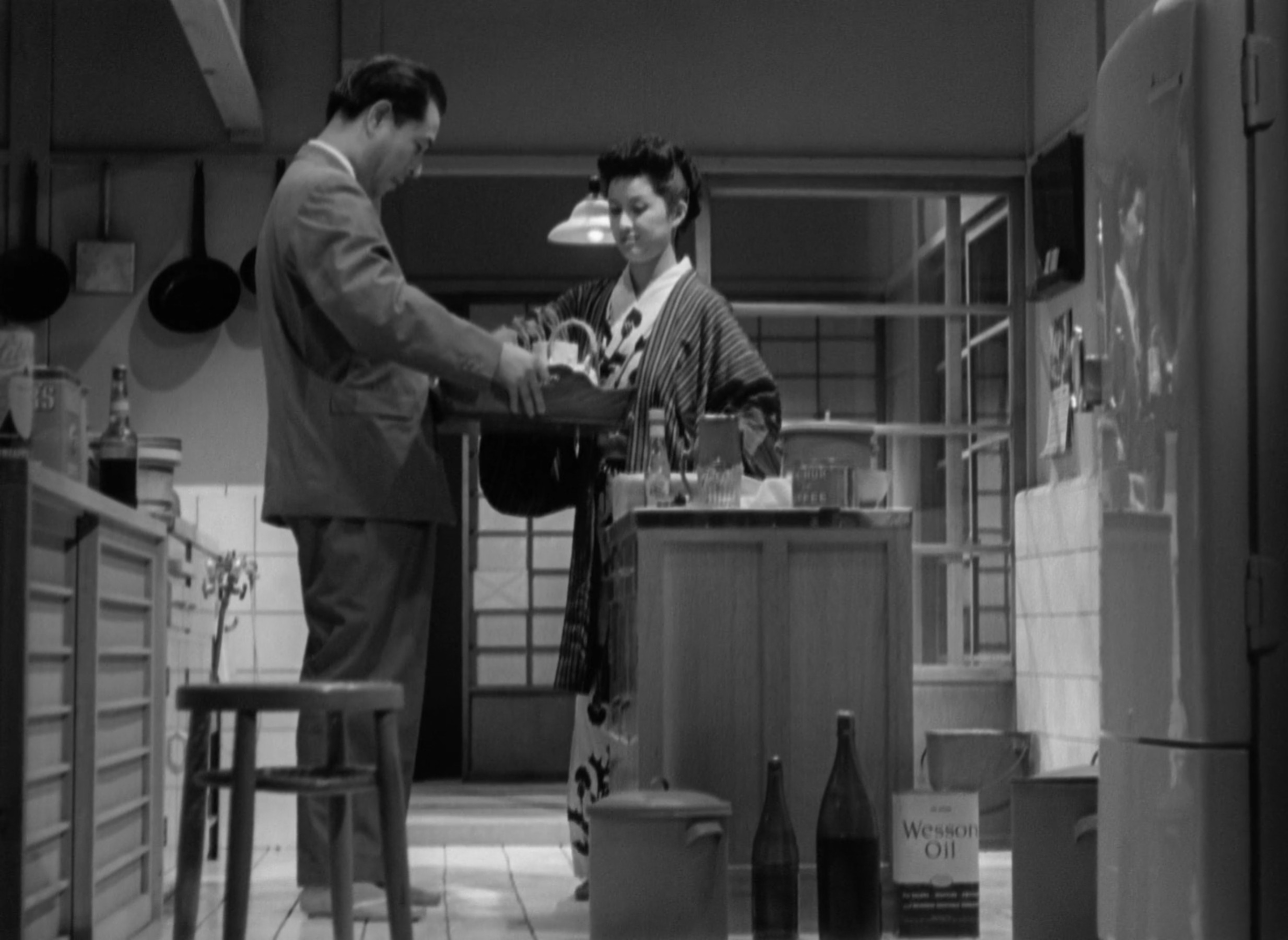
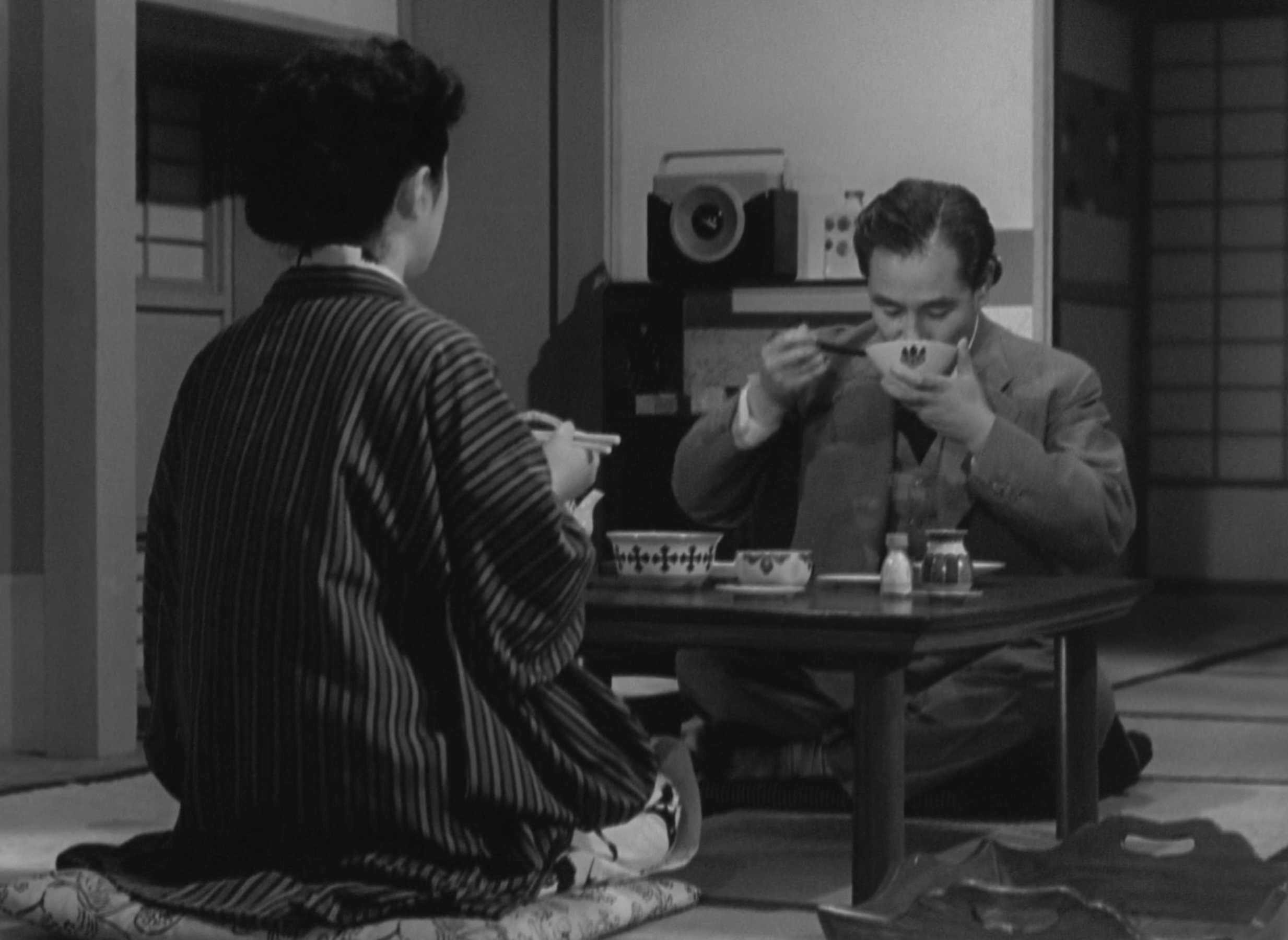
The Flavor of Green Tea Over Rice is currently streaming on The Criterion Channel.

